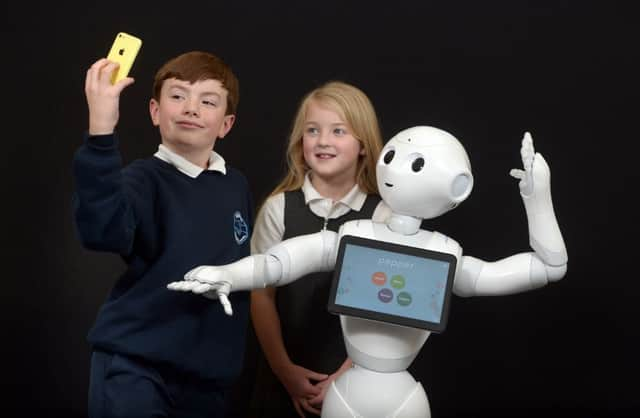Heriot-Watt prepares to launch its Year of Robotics


Now a Scottish univeristy is preparing to declare 2017 as the Year of Robotics - and is asking school pupils to design a suitable mascot to mark its launch.
The 12-month initative by Heriot-Watt University will showcase its contribution to the development of robotics and artificial intelligence (AI) for future generations, and will involved collaborations with schools, government and the private sector.
Advertisement
Hide AdAdvertisement
Hide AdThe mascot competition hopes to foster an interest in robotics among children from a young age, and is open to pupils from all Edinburgh primaries.
The advent of ‘deep learning’ in AI and robotics means the technology is now advancing at unprecedented levels. As such, computer scientists and programmers at Heriot-Watt University hope that by 2020, Pepper will be ready to be employed in customer services in a shopping-centre in Finland, with experiments scheduled to begin next year.
Professor Oliver Lemon, one of the academics behind the Year of Robotics, said: “Pepper and other humanoid robots have learned to act in ways that we would deem socially appropriate, a significant step forward from where we were five to 10 years ago.
“What we’re likely to see soon are robots that have social roles. For example, as carers, cleaners, and companions. It is important that society is ready to adapt to the massive changes these robots will bring about, both at home and at work.
“Robots, although still a novelty in large part today, are going to become increasingly more socially engrained in the near future. Today’s generation of young people are going to grow-up and work alongside autonomous, intelligent machines in such a way that social robots will become the norm. Demonstrating how this will come about is one of the key aims of the Year of Robotics.”
Robotics, AI and the anticipated economic contribution of automation are now high on government and business agendas, having been identified by the House of Commons’ Science and Technology Committee as a potentially transformative technology that will drive efforts to rebalance the UK’s economy.
